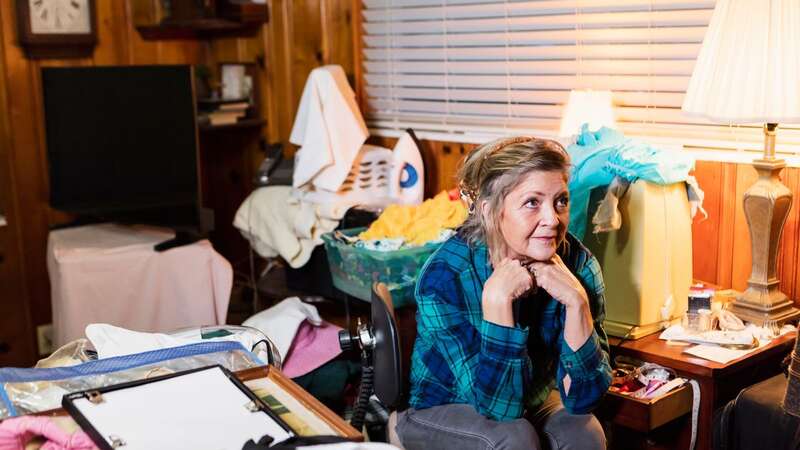
So many of us will be affected by dementia in our lifetimes, whether it is something that happens to us or our loved ones. NHS estimates suggest there are currently 850,000 people living with the syndrome in the UK, and numbers are expected to rise on account of our ageing population.
So it is important to understand the early warning signs that signal someone may require medical support. Keen to offer help, expert Rebecca Page, from care home group CHD Living, discussed a number of symptoms families may notice, while in conversation with the Express.
The expert emphasised that the topic should always be approached sensitively if you believe someone in your life is showing symptoms.
 If you have concerns that a loved one could have dementia you should seek medical help (stock photo) (Getty Images/iStockphoto)
If you have concerns that a loved one could have dementia you should seek medical help (stock photo) (Getty Images/iStockphoto)"The first step will always be to speak to the person displaying the symptoms and asking them if they are OK or if they have noticed anything wrong or different; be honest about your worries," she said. "This may upset the person initially, but it may also help them to realise that they are not alone, and people care about how they are feeling.
"The GP is always the first port of call to get advice and support if the person consents to this (if they can)."
 Hospitals run out of oxygen and mortuaries full amid NHS chaos
Hospitals run out of oxygen and mortuaries full amid NHS chaos
She also outlined a number of 'more unusual' symptoms to look out for, alongside the well-known symptoms.
"The most common symptoms are usually reduced short-term memory; however, this is not solely a symptom of dementia. Other common or obvious symptoms may be getting muddled when performing day-to-day tasks, being more reluctant to go out or engage with people and putting items in 'odd' places," she explained.
Page continued: "More unusual symptoms to look out for can be persistently adjusting clothing, disinhibition [ an inability to withhold an inappropriate or unwanted behaviour], keeping meticulous notes about everyday things, hoarding items that may seem excessive, and being very anxious about money.
"Each different symptom, however, won't necessarily point to a specific type of dementia on its own, although groups of symptoms can sometimes indicate that a person may have a certain type of dementia."
The NHS website explains that dementia symptoms may include problems with:
- memory loss
- thinking speed
- mental sharpness and quickness
- language, such as using words incorrectly, or trouble speaking
- understanding
- judgement
- mood
- movement
- difficulties doing daily activities
Emphasising the importance of a diagnosis, it states: "Although there is no cure for dementia at the moment, an early diagnosis means its progress can be slowed down in some cases, so the person may be able to maintain their mental function for longer.
"A diagnosis helps people with dementia get the right treatment and support. It can also help them, and the people close to them, to prepare for the future.
"With treatment and support, many people are able to lead active, fulfilled lives with dementia."
Read more similar news:
Comments:
comments powered by Disqus

































